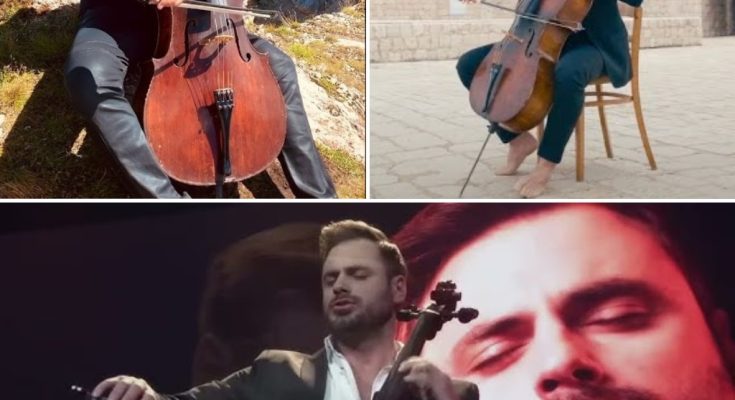His rendition of “Now We Are Free”, the iconic theme from Gladiator, wasn’t just a performance. It was a soul-stirring tribute to memory, legacy, and the silent power of music to speak where words fail. As the first note echoed through the air, a hush fell—not just over the audience, but over the night itself.
With nothing but a spotlight and silence surrounding him, HAUSER’s bow met the strings with a grace that was achingly restrained yet impossibly powerful. Each phrase whispered like a prayer. Each swell of sound felt like a heartbeat remembering what was lost and what still endures.

It wasn’t just a performance. It was a conversation between past and present, grief and glory. And HAUSER, with his signature emotional vulnerability, allowed the cello to do all the speaking.
“You didn’t hear the music—you felt it,” one audience member murmured after the show. “It was like the cello wept.”
The iconic Hans Zimmer–Lisa Gerrard composition has always been cinematic. But in HAUSER’s hands, it became intimate, living, and deeply personal. Every bow stroke felt like a breath taken for someone who could no longer breathe. And every pause felt like the silence between worlds.

Projected against the timeless backdrop of Budapest’s historic skyline, it wasn’t just a concert. It was a moment suspended in time—fragile, fierce, unforgettable.

HAUSER’s tribute to Gladiator wasn’t performed on a stage. It was etched into the night air, into the memory of every listener lucky enough to be there, or to hear it echo online.
Through his cello, he reminded us that music isn’t just art—it’s remembrance. It’s reverence. It’s the way we carry the past forward, one trembling note at a time.
